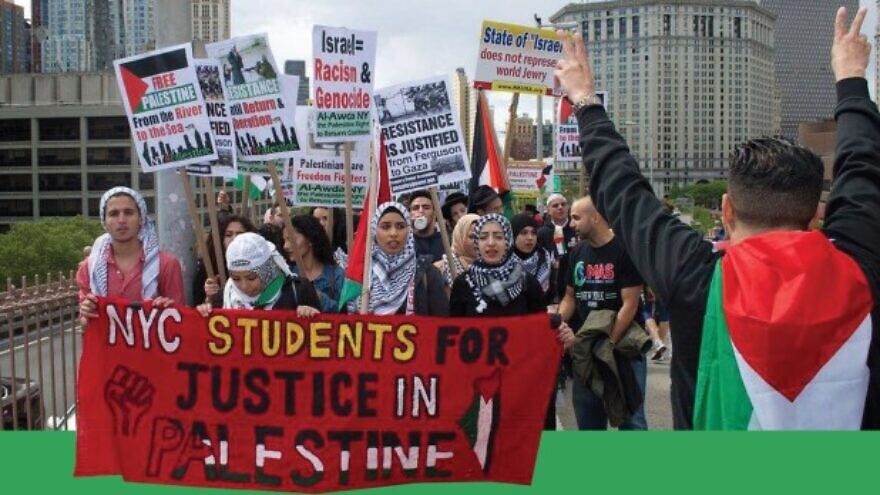BY DEBORAH FINEBLUM(JNS)
Just because most colleges and universities have been on at least a partial pandemic shut down this past year doesn’t mean that BDS forces have lost any of their vitriol.
Or that they’ve given up on pillorying the Jewish state and, all too often, the Jewish people as well.
Among those fanning the anti-Israel flames this past year:
- Skidmore College in Saratoga Springs, N.Y., initially denied Progressive Zionists a campus club status while granting the anti-Israel BDSStudents for Justice in Palestine (SJP) official club trial status. It eventually relented and granted a trial period to the Jewish students as well.
- University of Connecticut students found swastikas and a Nazi “SS” symbol scrawled on buildings around campus. And during Passover in a drive-by cursing, a Jewish student carrying a box of matzah was peppered with anti-Semitic slurs.
- Swastikas and other vandalism were found at Moravian College in Bethlehem, Pa., the sixth-oldest college in the United States.
- Meanwhile, on the other side of the continent at California Polytechnic State University in San Luis Obispo, on Shabbat morning Jewish students found swastikas among the anti-Semitic graffiti painted outside their fraternity house.
But with schools poised to reopen in the fall, the anti-Israel forces are likely sharpening their knives for more harassment. Consider:
There have been 138 BDS resolutions put before student governments in the last 16 years—and 33 percent have passed. (Ivy League-watchers take note: Two years ago, Brown University in Providence, R.I., the kind of school parents often pray their kids can get into, was the first Ivy to pass a BDS resolution.) And each of the last 17 springs has seen Israeli Apartheid Week at dozens of schools like Boston University (32,551 students) and the University of California, Davis (35,600 students), exposing students to a series of anti-Israel speeches, events and walls festooned with Israel’s purported crimes erected in student unions, central quads and elsewhere on campus.
But besides its pernicious influence on the next generation of voters and policy-makers, how does the campaign against Israel affect the Jewish students on campus?
That response can range from discomfort to anger to reticence to a full-blown embrace of the anti-Israel narrative to galvanizing a young adult’s Jewish pride, say those who work in the field.
“We’re seeing it’s the students who arrive without a basic grounding in their people’s history and sense of Jewish selfhood who are most vulnerable to cancel culture,” says Tammi Rossman-Benjamin, co-founder and director of AMCHA Initiative, which investigates and combats campus anti-Semitism. “Intersectionality means they’re told, ‘You can join us, but understand that BDS is also part of our coalition.’ ”
The upshot: Jewish students having to choose between progressive causes and standing up for Israel and the Jewish people. “Many of them opt to shut down their Jewish selves, refusing to wear their Jewish star,” says Rossman-Benjamin, who spent two decades teaching Hebrew and Jewish studies at the University of California, Santa Cruz. “It takes a strong Jewish identity to have the confidence to stand up and say, ‘You can’t tell me I can’t be a feminist and also a proud Jew who loves Israel.’ ”
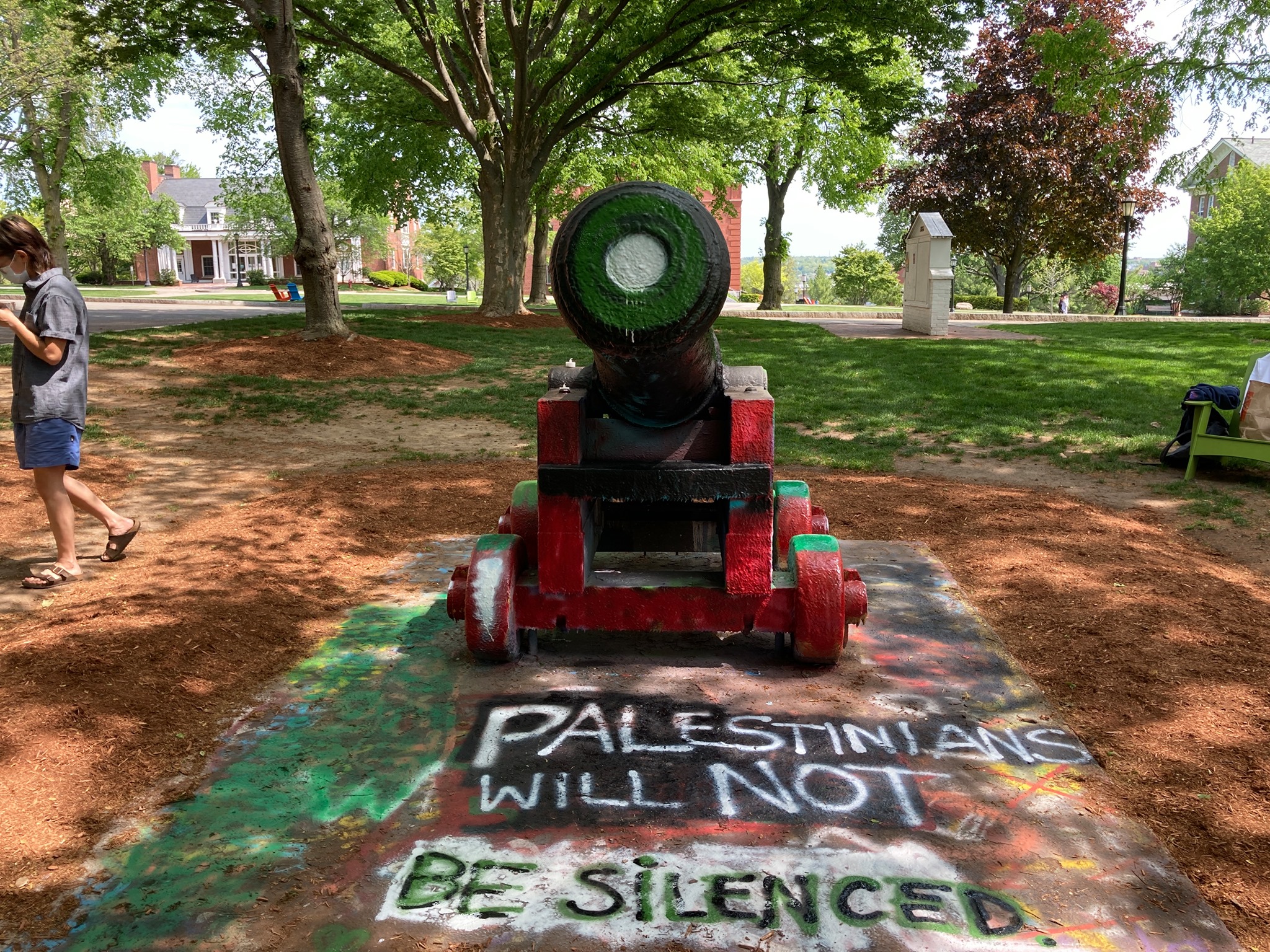
“It’s no coincidence that anti-Israel forces focus their energies on schools with more Jewish students to try to poison their minds about Israel,” says Hillel International president and CEO Adam Lehman. “Like the child at the [Passover] seder who doesn’t even know how to ask, many of our kids are vulnerable.”
The first piece of advice Lehman offers parents is to know their child. “Some students when confronted with anti-Israel arguments will thrive from the challenge of standing up for themselves and fighting back, and grow into community leaders, while others will do better in a less fractious environment, and still others are more easily swayed by peers and authorities,” he explains. “I’m not saying to avoid the top schools, but it’s key to know your child and make sure he or she is prepared to weather any storm.”
Of the roughly 5,000 colleges and universities across North America, only a few hundred have an overt anti-Israel problem, says Academic Engagement Network (AEN) executive director Miriam Elman. “But those few hundred are typically the elite schools that attract Jewish students—many of whom increasingly feel they have to disavow Israel and the notion of Jewish peoplehood to be active in progressive causes with their friends.”
But in addition to friends waving the anti-Israel flag, many Jewish students encounter pressure from the very people being paid to educate them: the professors themselves when they begin to use their lectern to preach rather than teach.
Since most campuses were mostly empty this past year, having moved classes onto Zoom, much of the hate has also moved online. Case in point: University of California Merced engineering professor Abbas Ghassemi’s tweet of a “Zionist brain” featuring “frontal money lobe,” “Holocaust memory center” and “world domination lobe,” just one of his posts that, in classic anti-Semitic fashion, accuse Jews of plotting nothing less than world domination.
The influence wielded by professors, instructors, lecturers and even teaching assistants preaching an anti-Israel doctrine to a generation of students is why AEN with its 750 faculty from schools across North America focuses its activism there.

“A student is at a school for maybe four years and then they’re gone, but these professors can remain campus fixtures for decades impacting countless students,” notes Elman, whose organization engages faculty members to work together to combat anti-Israel forces on campus, including academic boycotts of Israeli universities and their faculties.
Such professors betray the purpose of education. “The job of a university is to make you think for yourself. But cancel culture seeks to disallow anything they don’t like—meaning there’s no longer room for independent, critical thinking,” says Asaf Romirowsky, executive director of the 45,000-member Scholars for Peace in the Middle East.
“Many students arrive at school with a dangerous formula of apathy and ignorance, especially when they come not knowing Israel’s history, and why it’s still so important to the Jewish people and the world,” he continues. “What they might not realize is that Israel’s founders were liberals who survived the worst period in Jewish history, so they were ready to fight for a Jewish state.”
The problem is today’s students are getting a “watered-down revisionist history,” he says. “And since this generation doesn’t remember a time when Israel didn’t exist, they can’t appreciate all the lives sacrificed to secure their people’s homeland. So when told Israel is the bad guy, they don’t know enough to call out the lies.”
Among the pro-Israel power tools in the shed designed to heighten that awareness:
Talk the talk
Hali Spiegel, North American campus director for media watchdog CAMERA, often hears from concerned parents about how to help protect their children from anti-Israel attacks. Giving them a strong Jewish education and sending them to Jewish overnight summer camps are both important, she maintains.
“But even more important is what they learn at home,” she says. “Reading books and watching Israeli history videos together, talking about the issues at dinner and answering their questions so they know what the issues are and who the players are—all of these prepare them for what they may hear on campus and empower them to be a strong and outspoken voice for what they believe and for their people, but also to understand this is not going to always be easy or please everyone.”

Ever since Andrew Pessin co-edited Anti-Zionism on Campus: The University, Free Speech and BDS, the Connecticut College philosophy professor has heard from countless Jewish students who were told by professors and friends that they weren’t given the “whole truth” growing up and who don’t know how to respond. “To protect my own kids from that, I tell them everything—the history as I know it, including the Palestinian narrative and where I believe that narrative can be refuted.”
Much of Pessin’s concerns about today’s campus atmosphere can be found in the pages of his new novel, Nevergreen, featuring a campus mired in cancel culture. “And, though they claim to be about social justice and human rights, with a little digging you discover accusations that Israel, and, in fact, all Jews are white oppressors and the targeting of Jewish students on campus. The truth is whenever large groups of people are gripped by some all-consuming universalist ideology, as campus activists currently are, it never turns out well for the Jews.”
And that, he maintains, makes knowing their own people’s history, along with a strong, positive Jewish identity, the winning formula. “Because it’s simply not possible to be steeped in the history of the Jews and Judaism without understanding the historical Jewish connection to that small piece of the world.”
For a generation devoted to human rights, unmasking the double standard can be eye-opening. So says Richard Landes, a retired Boston University history professor who also served as that Hillel’s faculty adviser. “Amid all the Israel-bashing—the push for BDS and Israeli Apartheid Week—few seem to notice that the Palestinians, like most of the Arab world, are way to the far-right on all the human-rights issues and freedom of speech they criticize Israel for, including feminism and gay rights,” he points out. “The prejudice in that part of the world is overwhelming.”
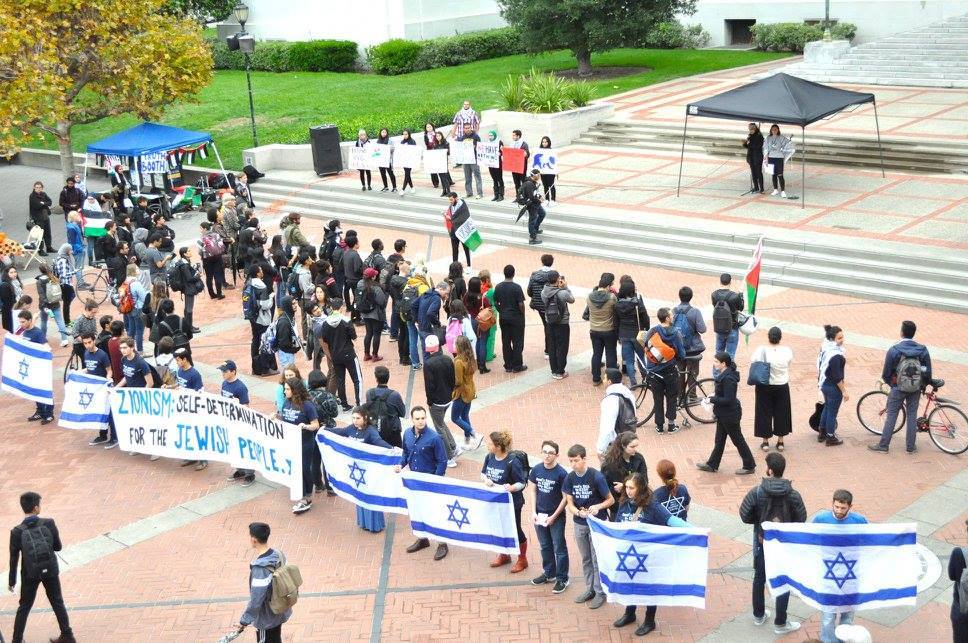
Do the homework
Jerome Ostrov’s Finding the Right School in the Era of BDS and Intersectionality: A Jewish Parents’ Guide to Colleges evaluates Jewish life and any anti-Israel and, increasingly, anti-Semitic forces at each of the North American schools researched.
“Families need to understand the campus environment their child will be entering, and the Jewish eco-system there,” says Rachel Fish, director of the Foundation to Combat Anti-Semitism, kicked off by New England Patriots owner Robert Kraft to help strengthen the younger generation defenses against the age-old hatred of Judaism, the Jewish people and the Jewish state. “Is there a Jewish-studies program? A Middle East studies department? And, if so, who funds it and how does that funding translate into the hiring policies and the curriculum?” says Fish. “Knowing these things helps you envision what the prevailing messaging is in the classroom.”
It’s also important to emphasize to your child that all forms of hate, including anti-Semitism, share a common denominator: marginalizing and scapegoating the other, she adds. “Meeting them where they are on social media, we show young Jews they can stand together with others against all forms of hate—be it against blacks, women, gays or Jews, and whether it comes from the right or the left.”
Parents also need to bear in mind “that BDS and the rest of the hate can bubble up suddenly on the least expected campus,” says Elman. “With the anti-Semitic harassment and targeting of Jewish students as white racist oppressors in-person and online, at many schools, they’re feeling less and less comfortable.”
But she also points out that even when a school has a known anti-Israel history, “you can’t be afraid to send your kid there, especially if they also have a supportive community with a Chabad, Hillel and kosher-food service. These can be unifying forces that help strengthen Jewish students.”
Fighting on multiple fronts
Protecting your child from anti-Israel hate typically requires a multi-pronged approach, according to Roz Rothstein, founder and CEO of StandWithUs, an organization committed to education and on-the-ground support as crucial to fighting anti-Semitism, with programs for high-schoolers and even middle-schoolers.
Fundamental for college-bound students is understanding the distinction between what anti-Semitism is and isn’t, and who the perpetrators are, says Rothstein, speaking from her Los Angeles office, as well as knowing their legal rights.
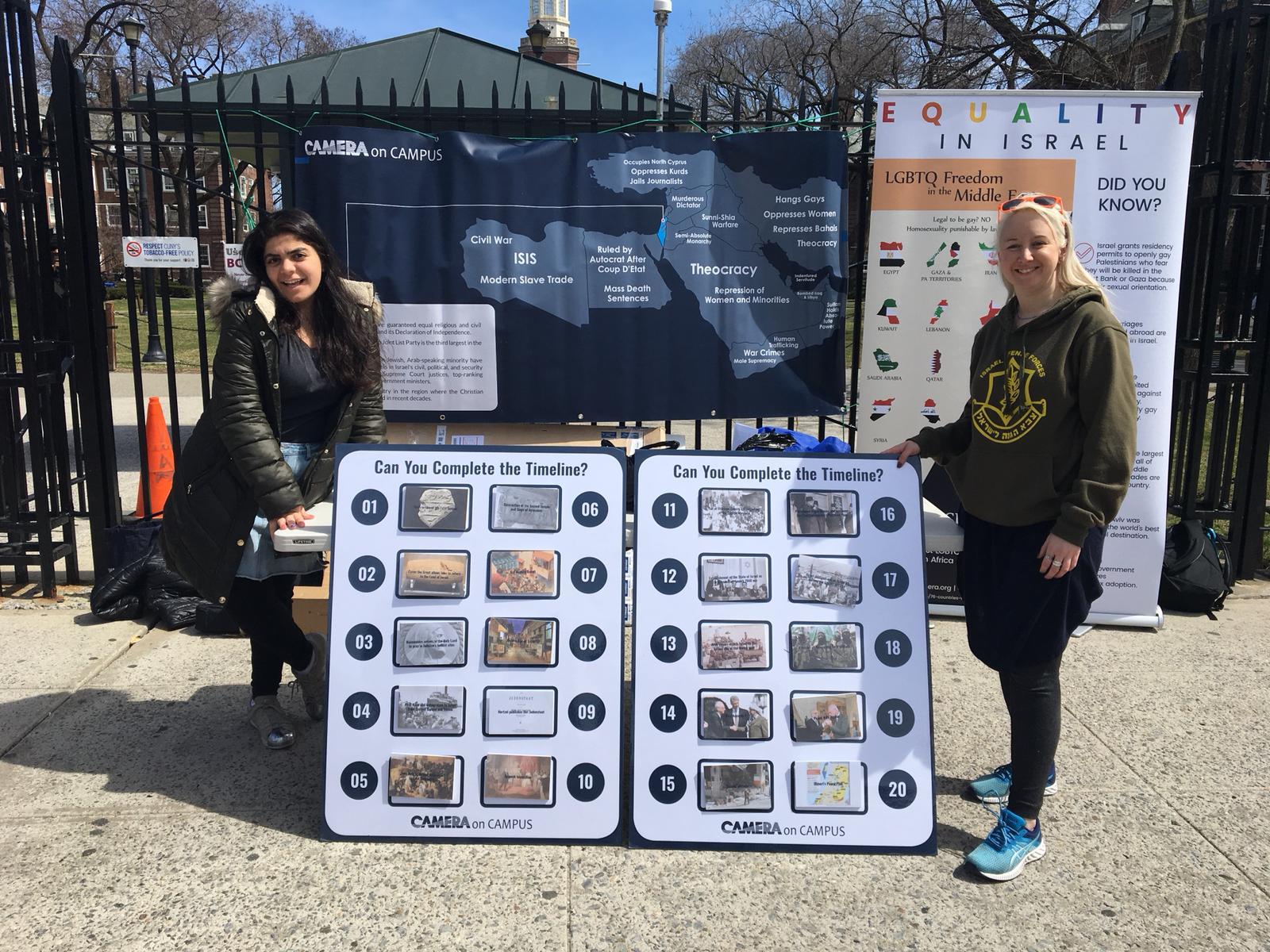
The next step is learning to be proactive, she says, by building the campus pro-Israel network and creating Israel programs on campus to educate and inspire their peers. She also advises students to get involved in other groups that they’re interested in “to make friends outside their inner circle” and join student government, “so if there’s BDS or other anti-Israel moves afoot, they’ll have a voice. They also need to know that they’re not alone—that Chabad and Hillel and organizations like StandWithUs have their back, she adds. “And, above all, to stand tall, be proud, speak out and educate yourself and your friends.”
Israel, up-close and personal
Arguably, the most potent of protective devices is actually experiencing the country that’s the butt of so much vitriol. Over the last two decades, for a whopping 750,000 young adults from 68 countries, Birthright Israel’s free 10-day trip has been how they enter into a relationship with Israel. “Students who arrive on campus not knowing what they’re going to encounter, when they’re attacked—if they’re unaware of how Israel fits into our people’s long and amazing story—they’re ready to drink the Kool-Aid,” says Birthright’s vice president of global marketing Noa Bauer.
On a Birthright trip, they get to know Israel and each other, and just as important, they bond with the IDF soldiers who accompany them, who are their own age and a lot like them, says Bauer. “Experiencing Israel with their feet and through their eyes, they can judge for themselves and realize how distorted the BDS picture of Israel really is. That’s why it’s the No. 1 game-changer.”
After a year of forced pandemic-related hiatus, the trips have resumed this summer, says Bauer, albeit in smaller groups.
An even longer Israel immersion can deepen the Israel effect. So says Danny Stein, in his 13th year teaching mostly American teens at the Alexander Muss High School in Israel in Hod Hasharon, which offers summer and semester programs. “Just riding a camel doesn’t do it; we literally show them what this little strip of land means to the Jewish people—their people—till they feel it in their gut,” says Stein. “So, when they get to campus, if they feel the hate, they’ll be strong, knowledgeable and ready for the arguments. But we only have them for a few months, so we have to make that time count. It needs to stay with them for the rest of their lives so they can pass on to their children.” (Note: For those who haven’t been able to get to Israel this past year, Stein offers online teaching and virtual touring.)
And sometimes, Israel becomes a family affair. “We spent a sabbatical and several summers in Israel when our kids were young precisely so that they would know Israel as insiders,” says Jonathan Sarna, the Joseph H. & Belle R. Braun Professor of American Jewish History at Brandeis University and author of American Judaism: A History among other titles. “Instead of learning about Israel from TV, our children saw it firsthand; I know of no better way to ensure that they know the real Israel, not the caricature villain of BDS,” he says. And, as young adults, each of them returned to Israel on gap-year programs before college, “connecting with Israel independently from the more mature perspective of older teens.”
Meanwhile, back on campus …
One student who’s stood up to the hate is Max Price. Last winter, after the Tufts University junior—and member of the Tufts Community Union Judiciary, a committee charged with monitoring student government legislation for bias—protested a Students for Justice in Palestine (SJP) referendum blaming Israel and its American Jewish supporters for encouraging “racist conduct” by police, he reported that months of intimidation, harassment and discrimination ensued (including anti-Semitic accusations about Jews, money and power).

 >“I have to say, I’m disappointed in my administration, which did nothing to protect me from any of this,” says Price. Which is why his advice to parents is: “First and foremost, prepare your kid. If they don’t know the landscape, they’ll be arriving campus clueless about BDS and all the anti-Israel pressures they could be under. They need to educate themselves that anti-Semitism can come from different sources.”
>“I have to say, I’m disappointed in my administration, which did nothing to protect me from any of this,” says Price. Which is why his advice to parents is: “First and foremost, prepare your kid. If they don’t know the landscape, they’ll be arriving campus clueless about BDS and all the anti-Israel pressures they could be under. They need to educate themselves that anti-Semitism can come from different sources.”
His own reading list of people like writer and former New York Times editor Bari Weiss, and Emory University Professor and author Deborah Lipstadt, he says, “helped me understand what’s really going on and who’s behind it, and form my thinking on all this.”
CAMERA’s Spiegel believes every Jewish kid walking onto campus needs to also know who their support team is—“the people and organizations and Jewish student groups on the ground who know the scene and can help them navigate it.”
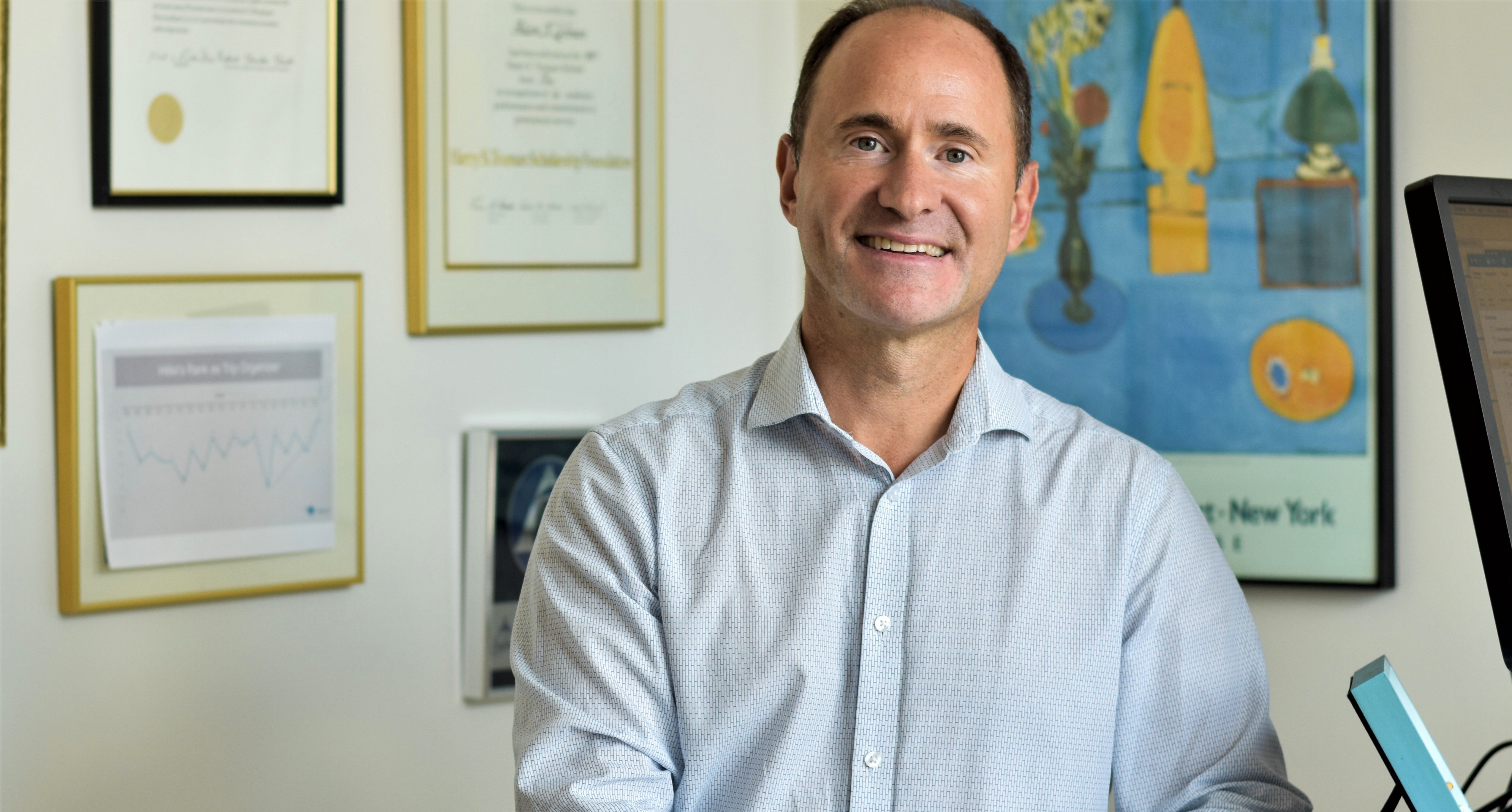
It’s a role Hillel’s Lehman takes seriously. When it comes to BDS-proofing their kids, in addition to sending them to Israel (“there’s absolutely no substitute for direct experience”) and to learning its history to defend against accusations, he recommends that they connect with their Hillel before arriving on campus. “So if they’re encountering a professor spewing anti-Israel rhetoric—or see it on social media, which has become a major front for anti-Israel venom—they already have a supportive place to turn, a community and a home away from home.”
For others, that home away from home is the college Chabad House. Chabad on Campus operates from the belief that “each student, each Jew is an integral part of our story, of our people’s destiny,” says Rabbi Yossy Gordon, CEO of Chabad on Campus International, with emissaries serving students at hundreds of universities around the world. “They know they’re going to be supported and safe there, and that they will not be judged—just loved for who they are,” he says.
“This only works,” notes the rabbi, “because students’ ‘sincerity radar’ tells them they can feel at home since these people care about and accept them.”
At the end of the day, besides the support of campus Jewish organizations, parents have every right to expect a school’s administration to be there to protect their child from intimidation and abuse.
“When anti-Israel forces make life uncomfortable for Jewish students, when there’s a double standard about who is allowed to speak up for their beliefs and who isn’t, sometimes parents have to get involved,” says AMCHA’s Rossman-Benjamin. “What you’re hoping for—what you’re paying for—is for your kid to feel this is the most exciting chapter in their life so far—one they have every right to experience without fear. So before you pay $60,000 a year, you need to know your child will have the same protection and right to free speech as any other student.”
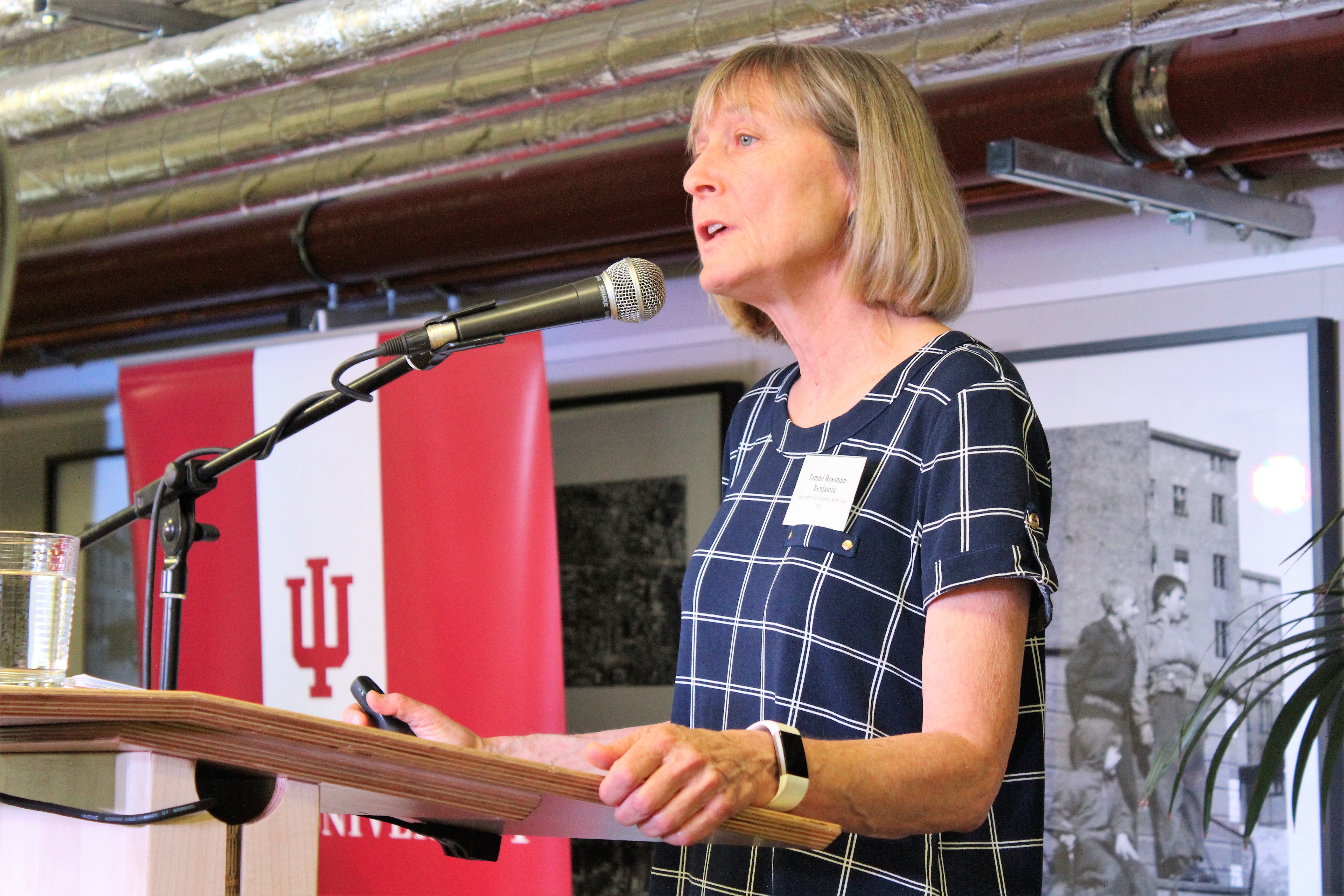
She says that parents need to tell the school: “ ‘We’re not going to send our child there—or back there—if you can’t guarantee their equal right to fully participate in campus life free from harassment.’ ”
“Even though there’s no such thing as an anti-BDS pill,” says Rossman-Benjamin, “it’s never too late to grow the understanding of who we are as a people and what our homeland’s meant to us for 4,000 years. Except for that, we would have been wiped out years ago,” she adds.
“Because in every generation, someone has tried to destroy us, with BDS just the latest tactic. The real miracle of Passover is not that G-d saved us, but that 3,500 years later, we’re still here to tell it to our kids,” she says. “Once a young Jew feels part of this and proud of it, then BDS can’t sway them.”
And that comes full circle back to Max Price, who’s taken on his university in defense of the Jewish people and the Jewish homeland. “Students need to be prepared to be disappointed in the lack of support they may receive from their school; I know I am,” he says. “But they’ll also learn the hard way what anti-Semitism can look like in the modern world—not always a swastika or a white hood, but sometimes, it’s progressive students who mean well but don’t understand the oldest form of bigotry in history. I hope I’m the last one to go through it,” he adds with a sigh. “But I doubt it.”

